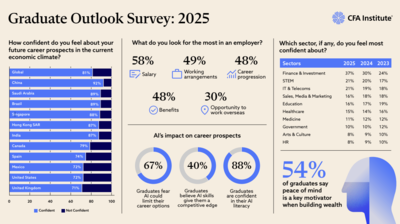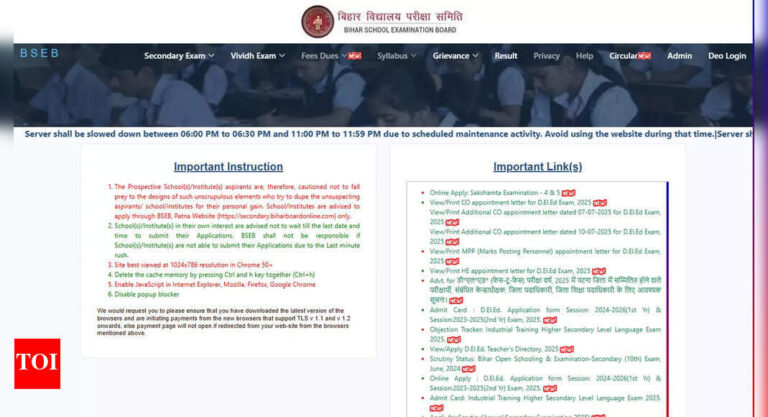
Indian graduates are stepping into the job market with a level of confidence that clearly eclipses their American peers. A staggering 87% of Indian students and graduates say they feel prepared to launch their careers, compared to just 72% in the United States, according to the Graduate Outlook Survey 2025 by the CFA Institute—the global body known for setting benchmarks in financial education.But this isn’t just about optimism. It reflects deeper contrasts in how young professionals across countries are experiencing university life, interpreting employer demands, and defining what it means to be truly job-ready.
The trigger behind the confidence
The survey—drawing responses from over 10,000 students and early-career professionals across 21 countries—highlights a fundamental shift: Today’s graduates care far less about grades and brand-name universities, and far more about real-world experience and marketable skills.Top contributors to job confidence include:• Relevant skills (50%)• Work experience (47%)• Internships and professional networks (34%)Meanwhile, traditional academic credentials are losing ground. Just 28% of respondents cited grades, and 25% pointed to university reputation as key to job readiness.
Credentials over degrees? Graduates think so
The global job market’s appetite for applied skills is leading many students to rethink the value of traditional degrees. In fact, 60% of respondents now believe industry certifications are more valuable than postgraduate degrees.Certifications like the CFA Charter, which offers sector-specific credentials with international recognition, are increasingly seen as pathways to competitive advantage in a skills-first economy. It’s a sign of the times: theory alone no longer cuts it.
A global snapshot and where India stands
India’s performance stands out—not just against the U.S., but against much of the developed world. Only China (92%), Brazil (89%), Saudi Arabia (89%), and Singapore (88%) reported higher levels of confidence. Countries such as the UK (71%) and Canada (79%) were notably lower than India. These figures reflect growing career optimism among graduates in emerging economies, many of whom report higher confidence in their readiness to enter the workforce compared to peers in some of the world’s most developed higher education systems.
The bigger picture
The Graduate Outlook Survey 2025 offers timely insight for educators and employers aiming to support the next generation of professionals. As graduates increasingly prioritise practical skills, certifications and hands-on experience, academic institutions may benefit from embedding more career-aligned training into their programs. Strengthening access to industry exposure, professional guidance and skills-based pathways could further reinforce the confidence students report globally.For employers, the findings reflect a talent pool that is increasingly prepared to contribute from day one. Hiring strategies that recognise diverse forms of preparedness, whether through internships, certification programs or demonstrated skill sets, may align better with how graduates today define employability. In a competitive hiring environment, these adjustments could support both recruitment outcomes and long-term workforce development.








